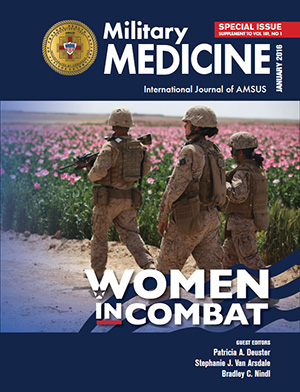Posted by Kate McGraw, Ph.D., Deputy Director of the Deployment Health Clinical Center on February 23, 2016

We are living in a time of great change. Change offers us many opportunities for positive growth. At the same time, change may create unanswerable questions, generate heated discussions or even produce anxiety in those impacted most by the change.
Military Integration Changes
The Defense Department has seen a number of significant changes related to structure and mission. Notably, in 2013, the secretary of defense rescinded the 1994 Direct Combat Definition and Assignment Rule, which had previously closed many combat-related military occupational specialties to female service members. This decision raised questions about the best ways to integrate women into these positions and focused attention on the physical and psychological health needs of all military females.
In the spring of 2014, the Consortium for Health and Military Performance (CHAMP) and the Office of the Assistant Secretary of Defense for Health Affairs hosted the Women in Combat Symposium. More than 90 policy makers, researchers and service members from across the Defense Department examined women-in-combat issues related to fitness and health, operational, environmental, community and cultural factors. DCoE helped shape the symposium’s content and dialogue. My colleagues and I facilitated group discussions about the psychological health needs, resilience, and overall well-being of women in combat positions.